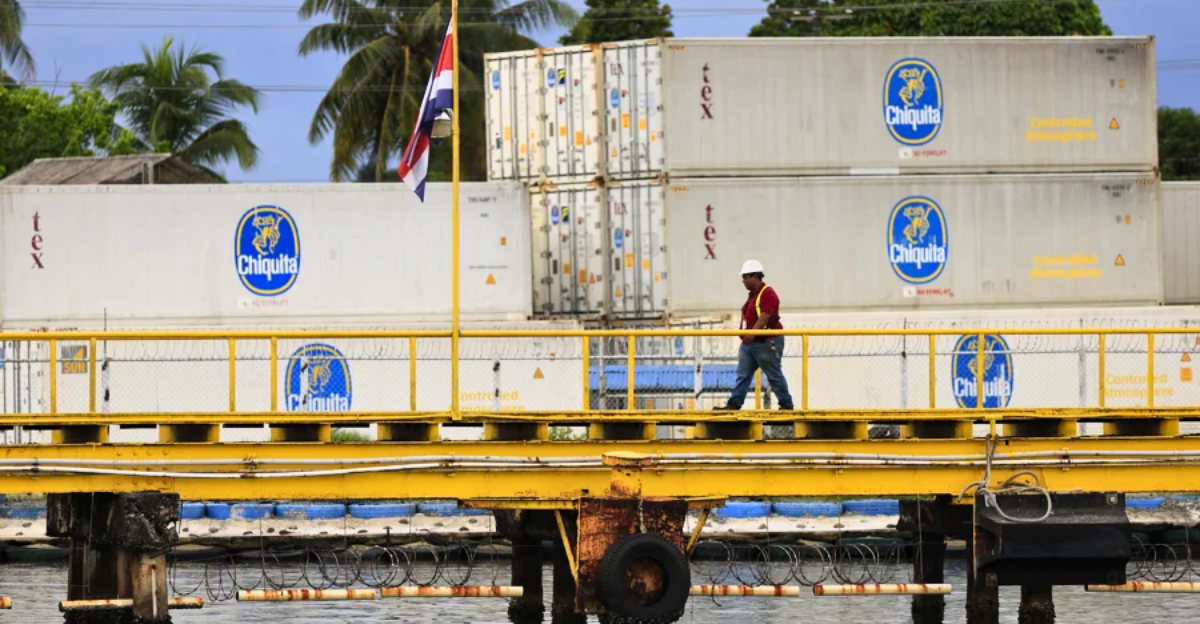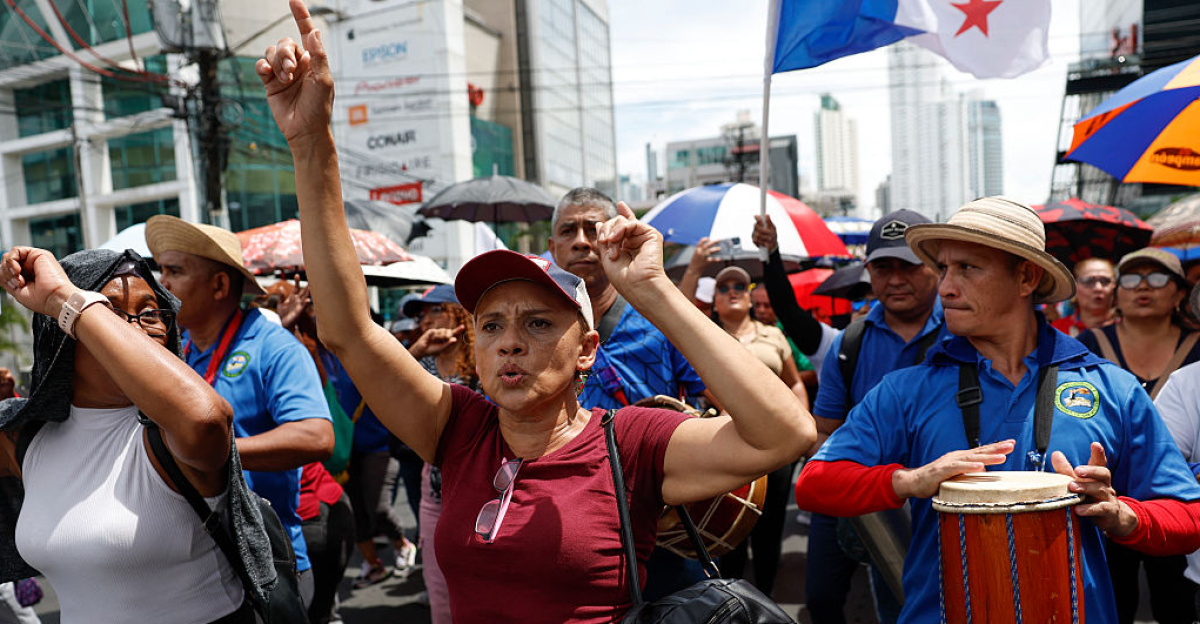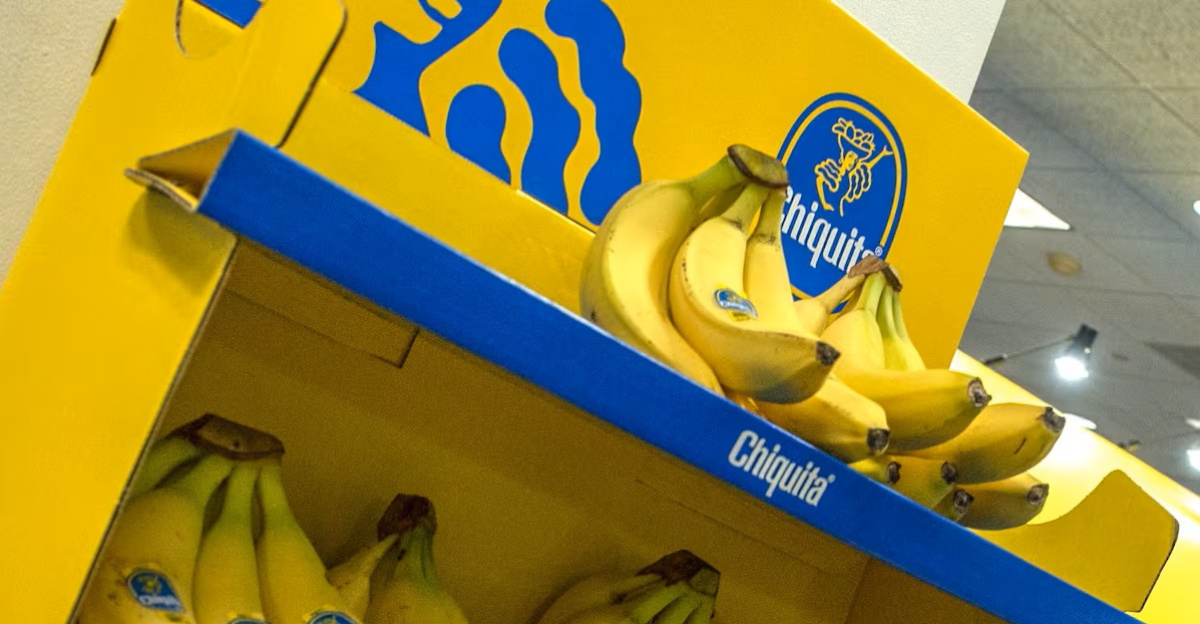
A crucial case study in the delicate nexus of business interests, labor movements, and governmental policy is Chiquita’s total operational shutdown in Panama, which resulted in the layoff of its whole workforce. The fundamental idea at stake is corporate agility versus local stability, where a multinational corporation chooses to completely withdraw in order to protect its overall economic viability in the face of severe operational disruptions and financial losses, despite the significant socioeconomic impact on the host country.
A crucial case study in the delicate nexus of business interests, labor movements, and governmental policy is Chiquita’s total operational shutdown in Panama, which resulted in the layoff of its whole workforce.
The Historical Background of Labor-Corporate Relations

Multinational firms and local workers in banana-producing areas have historically had a tense relationship that is frequently marked by power disparities. Originally called United Fruit Company, Chiquita has a lengthy and intricate history in Central America, often navigating social and political upheaval.
A pattern of strategic disengagement when local operating conditions become intolerable is highlighted by the company’s previous May layoff of 5,000 employees in Bocas del Toro, which was followed by the dismissal of its administrative staff and eventual complete exit. This historical perspective shows a recurrent pattern in which long-standing socioeconomic problems, which frequently predate contemporary labor disputes, create an atmosphere that is conducive to corporate retreat when operational profitability is seriously threatened.
The Unavoidable Need for Money

In the end, Chiquita’s choice was motivated by an indisputable financial necessity. Due to a protracted strike that started in late April and involved widespread protests against government social security reforms, the company reported suffering losses of at least $75 million. Any publicly traded company cannot afford to continue operating at this level of financial loss over such a short period of time.
Even though the decision was harsh, it was a logical one to safeguard the company’s finances in the face of unmanageable operating expenses and an unstable work environment. Rapid accumulation of these losses suggested that the operational environment had become structurally unstable, necessitating a drastic reassessment of the business’s dedication to the Panamanian market.
Reforms to Social Security and Mass Protests

Not just an internal labor dispute but also larger nationwide protests against social security reforms in Panama served as the immediate catalyst for Chiquita’s withdrawal. Road blockades at more than 40 locations were part of the widespread unrest sparked by these reforms, which the workers believed would negatively impact their future pensions.
The company claims that the protests led to an “unjustified abandonment of work” at Chiquita’s plantations, which resulted in the initial termination of about 5,000 workers in late May. Chiquita’s operational problem was effectively nationalized by the government’s slow response to the wider civil unrest, which turned a manageable business challenge into an unsolvable political and social quagmire from which the company saw no practical way out and accelerated its plans to leave.
Authority of the Government and the Rule of Law

In the end, Chiquita received approval from the Panamanian Ministry of Labor and Labor Development (Mitradel) to lay off its remaining 1,189 daily employees. Despite the dire consequences for local jobs, this government approval implies that the company’s legal right to shut down under such conditions is acknowledged. Later, President José Raúl Mulino stated that he hoped Chiquita would return and promised to work to make that happen, but he also made it clear that Chiquita, not the government, had the final say in the matter.
This demonstrates the legal framework that permits companies to withdraw from markets when circumstances worsen to the point where they can no longer be operated profitably, even though it may be painful to apply.
The Cascading Impact on Labor and the Local Economy

The local economy of Panama has suffered dramatically as a result of Chiquita’s closure, especially in areas like Bocas del Toro that produce bananas. Approximately 7,000 workers have been laid off, resulting in an immediate and severe economic downturn for a region that is heavily dependent on tourism and banana production.
This circumstance emphasizes how heavily local economies rely on big, international corporations and the disastrous results that can occur when these pillars are taken away. There is a humanitarian and developmental crisis in the impacted areas as a result of the ripple effect, which goes beyond direct employees and affects local companies, supply chains, and community services that depended on the revenue generated by Chiquita’s operations.
Comparing Shareholder Duty and Corporate Social Responsibility

The ongoing conflict between corporate social responsibility (CSR) and a business’s basic obligation to its shareholders must be critically examined in light of this incident. A for-profit company’s primary goal is still to maximize shareholder value, even though corporate social responsibility (CSR) promotes moral behavior and contributions to the welfare of society.
Long-term, unabated losses, it is argued, jeopardize the very basis on which any CSR endeavor could be constructed. The long-term sustainability of the entire global business would be jeopardized if it continued to operate at a large loss, which would ultimately hurt a much wider range of stakeholders, including other workers and investors around the world.
How Strategic Disengagement Is Unchangeable

Reversing a multinational corporation’s strategic disengagement from a region, particularly when it involves the departure of administrative staff and a full workforce layoff, is extremely difficult, if not impossible. Government requests for return are frequently ignored due to the severe damage to trust, the significant financial losses, and the logistical difficulties of resuming operations.
This case highlights the idea that strategic exits are much more difficult to undo than to start, and that even though the initial decision to withdraw may be quick, the long-term effects on the company and the host nation are significant and frequently irreversible.
Setting the Standard for Upcoming Engagements

A significant precedent for how multinational firms might react to comparable widespread labor disputes and civil unrest in other developing countries is set by Chiquita’s withdrawal. It indicates that businesses are willing to take extreme steps, such as total market exits, to safeguard their interests globally when confronted with ongoing operational disruption and significant financial losses.
This might cause other foreign investors to reevaluate their risk assessments in politically unstable areas, which could deter future investments and change how businesses interact with host governments and labor unions around the world. In order to prevent capital flight and economic stagnation in essential sectors, host governments must carefully balance social policies with the requirement to maintain an appealing and stable investment climate for foreign capital.
Evaluation

Driven by insurmountable operational challenges and severe financial losses, Chiquita’s complete withdrawal from Panama, which resulted in the loss of its entire workforce, was a brutal but ultimately inevitable strategic move. Due to a nationwide protest against social security reforms and an ongoing strike, the company reported losses of $75 million.
This decisive action is devastating for Panama’s economy and its former employees, but it also highlights an important lesson for governments and corporations: even deeply ingrained operations will be abandoned to ensure the survival and long-term viability of the global enterprise when the costs of doing business become prohibitive due to systemic instability.